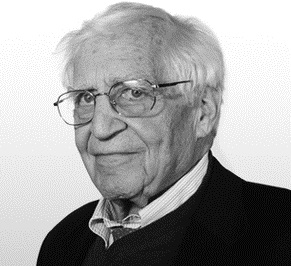Reflections on Secrecy and the Press from a Life in Journalism
Though I have been a journalist for most of my career, my experience with overclassification and the vagaries of declassification began in 1969 during an eighteenmonth stint running a subcommittee of the Senate Foreign Relations Committee that was investigating the military’s role in foreign policy during the Vietnam War.
Published by The Lawfare Institute
in Cooperation With

Though I have been a journalist for most of my career, my experience with overclassification and the vagaries of declassification began in 1969 during an eighteenmonth stint running a subcommittee of the Senate Foreign Relations Committee that was investigating the military’s role in foreign policy during the Vietnam War.
Chaired by Senator Stuart Symington (D-MO), the subcommittee held a series of closed hearings on US military activities in various countries in late 1969 and early 1970. The first transcripts we chose to release for public consumption concerned a classified hearing on the Philippines, where the Pentagon had bases that it used in the Vietnam War. A classified copy of the hearing was sent for clearance by the State Department, which returned it more than a month later with much of the testimony deleted because of classification.
That began weeks of negotiations between myself and a State Department ambassador who had been designated as the administration’s liaison with the subcommittee. I pointed out that some of the deleted material had been published in newspaper and magazine articles or presented on radio or television. I was told that this information had not been “officially released” and so could not be carried in a congressional report because that would make it an authorized release of the information which the “originating agency” —State, Defense, CIA, or the White House —still wanted kept classified. (This is essentially the same argument that the government makes today to fend off releasing information about classified CIA-directed drone operations discussed in the press.)
One of the deletions concerned a reference made by Senator J. W. Fulbright (D-AR), then chairman of the full committee, to then Philippine president Ferdinand Marcos as “a crook” during a discussion of the millions of dollars of foreign military assistance that appeared to be missing. The State Department maintained that Fulbright’s view of Marcos should remain classified because its disclosure would harm US foreign policy. In the end, State’s ambassador and I could not agree on between ten and twenty items, including the Fulbright statement. At that point, Symington scheduled a Saturday morning meeting with then secretary of state Bill Rogers to go over the outstanding declassification issues. Symington and I arrived at a conference room at the State Department to be met by an entourage of department officials. When Rogers appeared, he was dressed for a tennis game to follow the meeting.
Rogers opened the meeting by asking his old friend “Stu” to begin the discussion. Symington opened his notebook and read off the first issue, which concerned a discussion of allegations of criminal activity at a Philippine base where US forces were stationed. Rogers asked a staff member to discuss the issue, but Symington intervened.
I remember the normally respectful Symington saying, in effect, “Wait a minute, Bill. This was supposed to be between me and you. It looks like this wasn’t important enough for your personal attention and if that’s the case I guess it will just be up to us senators to decide what to release publicly.” With that Symington closed the notebook, handed it to me, and we left. The subcommittee and then the full committee voted to release almost all the State Department’s classified facts and statements that were at issue—including Fulbright’s words—and the world did not collapse. Declassification issues for the subcommittee thereafter went much more easily.
Thus, it was forty-five years ago when I learned how arbitrary the nation’s classification system was. Many real secrets obviously needed to be kept. But individuals could disagree about information on the margins, and when you got to those gray areas— which included information about bad decisions and failures—it was safer for officials to classify since no one was penalized for over-classifying. It was a lesson I never forgot, and one that guides many national security journalists.
But another lesson has stuck with me from that Symington experience, a lesson that I fear some of my fellow journalists neglect. Symington’s encounter with Rogers was predicated on the principle that individuals must make reasoned judgments about the exposure of national security secrets, take responsibility for those decisions, and face whatever consequences might follow,
This essay reflects on this principle and sounds a note of caution about contemporary press attitudes toward government secrets. In writing about national security issues and events, journalists too often behave like an interest group. They often confuse their own personal interests, as well as their employers’ interests, with the public interest and cloak them with First Amendment claims. In addition, some are too quick to assert that special constitutional entitlement and act with impunity without considering that they may be interfering with legitimate investigations.
These claimed entitlements are often ones that they do not, in fact, legally possess.



